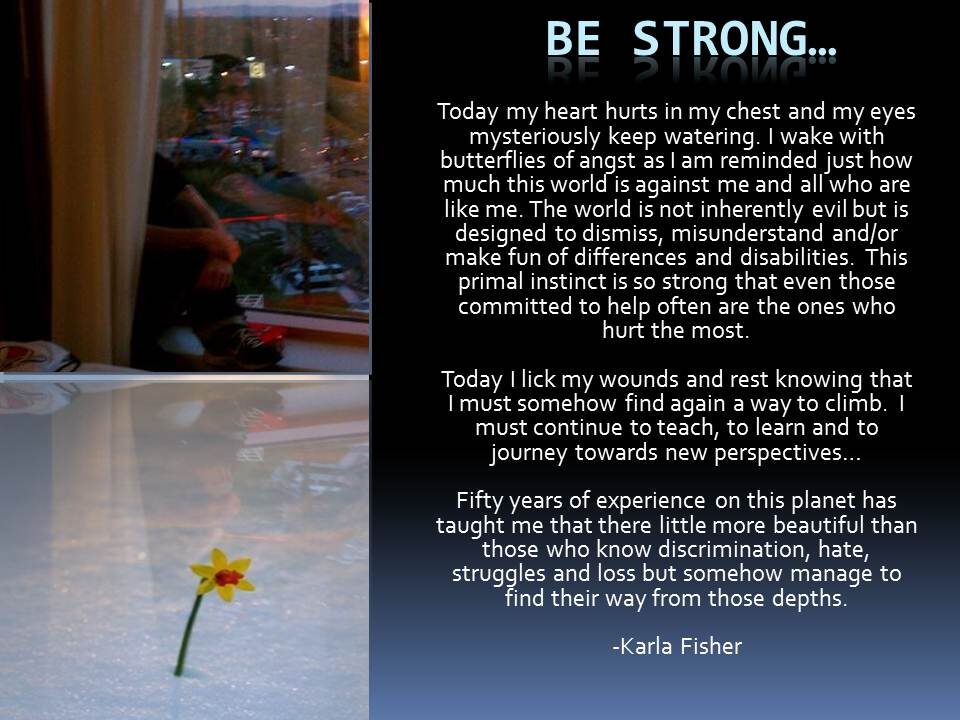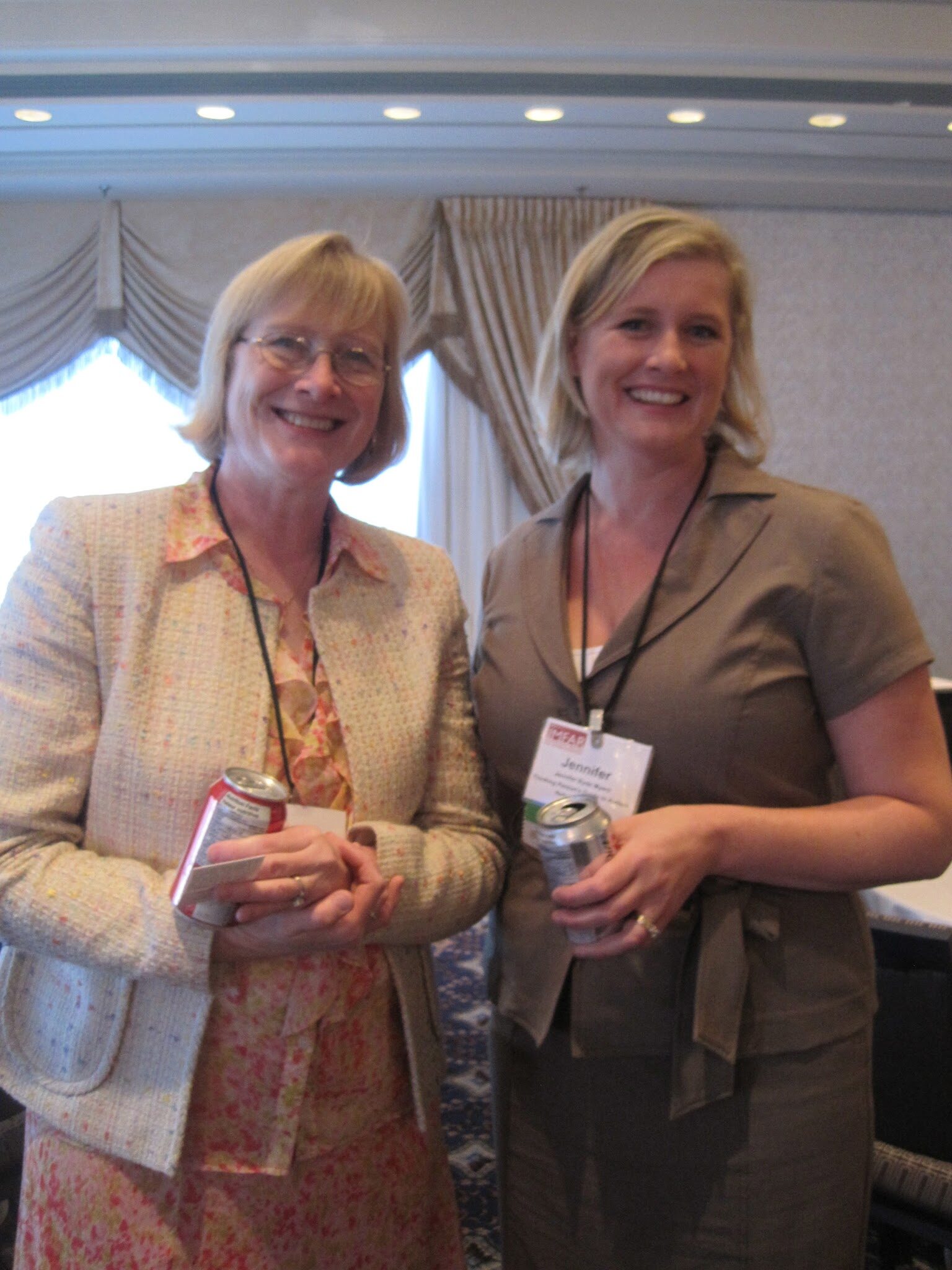….if you want them to have high self-esteem or learn about autism. Karla Fisher Karla’s ASD Page This past week has been nothing short of amazing in the world of cognitive dissonance. At work, I was honored by being offered a key position in a critical program at one of the largest high tech companies in the world. I had worn my favorite black hoodie to my job interview. On the day I received my official offer letter, I received handshakes, congratulations, and assurance from my boss and other leaders that this is a great honor and opportunity. I rest knowing that I am amongst the top in the world at the work that I do, and brace to continue towards being even better. I am proud of this work that makes such a contribution to the world at large. This is a world where I am accepted and valued,…
Tag: ASD
Sue Swedo M.D. Chair, DSM-5 Neurodevelopmental Disorders Workgroup An Update on the DSM-5 Recommendations for Autism Spectrum Disorder and Other Neurodevelopmental Disorders We spoke with Sue at length both at the IMFAR Stakeholder’s lunch, and after her IMFAR talk. Any errors or omissions in this summary of her talk are on TPGA. -SR —- The goal of the new DSM-5 is clearer criteria, changing all PDDs (Pervasive Developmental Disorders) to ASDs (Autism Spectrum Disorders). This is group’s thoughts on what they are and are not concerned about. In addition to 11 full time members of DSM 5 task force, they have 2 dozen advisors. It’s been a five-year process. She’s deeply appreciative to all of her colleagues. They never expected to be making headlines, the DSM is a bit dry if you sit down and read it. They were shocked when the headlines became about stealing services from 2/3 of…
Kerry Magro KerryMagro.com Kerry was recently featured in a story that ran in the Orlando Sentinel and the L.A. Times which shared his transition to college life and the skills he gained there as he became a self-advocate. He has since graduated from Seton Hall. -The Editors Hello, my name is Kerry Magro and I have autism. I just recently learned about The Thinking Person’s Guide to Autism from a truly outstanding individual, Laura Shumaker, who is a remarkable advocate for those of us who are on the spectrum. Once I looked at the website, and read some of the essays, I knew I was hooked. Regardless of what I took from the essays, I wanted to help in any way I possibly could. This gave me the idea of posting one of my own personal works about coming out about being on the spectrum. Below you will find…
Kim Dull modernparentonline.com/never-a-dull-moment I realize that 99.999% of the people I talk to regarding my son’s special needs and diagnoses have good intentions–they just have no clue what to say or how to react. They’re trying to help, but unfortunately some of the most common responses are the most irksome. I want to acknowledge that quite often I am just as clueless about how to respond when someone shares news, like a new diagnosis, even though we’ve been through it ourselves. Everyone is different and reacts differently; that’s what makes it so hard. What works for ME may not work for the next person. And this is not intended to make you feel like you need to walk on eggshells when you get this news. Quite the opposite: it’s intended to make you feel comfortable in NOT knowing what to say. So here’s a quick how-to guide for navigating the…
These two essays were originally published in the Autism Society’s magazine, the Autism Advocate. While the references here are for the Christian and Jewish faiths, many of the tips could be applied to other religions. We’ve had several posts in the last year about autism and religion, but we are always seeking to add diversity to our knowledge base. If you have an experience you’d like to share about faith, community or religion, we’d love to hear from you please contact us. -The Editors The Christian Perspective By Terri Connolly The church experience is often one of generational tradition for many families. Other families recognize their need for a place of spiritual refuge and nurturing for the first time in their lives when they have children or at other trying times. Christ’s example of “agape,” or unconditional love, is paramount to our understanding of the role of acceptance in…
Kristen Kristen is eighteen years old and currently in her third year of high school. A statement I have always found confounding is, “I wouldn’t wish it on anyone.” Let me explain: I find this confusing because what if “it” could be beneficial or insightful for the whole of society? What if perspectives widen because of “it”? Who am I? I am an unknown Aspergian. I was diagnosed at the age of three, but with no follow up afterward. My childhood consisted largely of unwanted (probably neurologist) doctor visits where doctors would run test after test, and force me to look them in the eyes. I grew up with a degrading “you’re not normal” mentality. Needless to say, my childhood, like me, wasn’t “normal.” The doctors finally concluded that I had ADD and gave me Ritalin, which was useless. If that wasn’t cruel enough, in second grade I finally realized…
Sarah MacLeod quarksandquirks.wordpress.com findingmygrounduu.wordpress.com My younger son had a rocky start, with a changing set of labels. At two months, it was colic. At 12 months, he was a “fussy baby.” By four, hypontonicity, sensory processing disorder, convergence disorder, and possible PPD-NOS entered the scene. At six, a psychologist evaluated his cognitive skills and “profound giftedness” joined the party. At nine, he returned to the psychologist for treatment for anxiety and tantrums. Recently, at the end of three frustrating months, the psychologist added Asperger’s syndrome to the list. We — his father and I — had known for years that he was an unusual child. From the start, I scoured bookstores and libraries, searching for answers to or at least a name for what made my younger son so uncomfortable in the world. The answers had to be somewhere in print, I figured. My bookshelf, computer, library card, and I…
Michael V. Drejer twitter.com/maialideth When I was diagnosed with Asperger’s syndrome in 2003 at the age of 25, I had already pretty much given up hope of ever finding and getting a job that was right for me. All I had to show for my job skills was a high school diploma with a lousy grade average, and a few exams which I barely passed when I tried studying to become a school teacher and when I tried getting a bachelor degree in English at the university, neither of which I finished. Apparently it is difficult for people with Asperger’s syndrome to get a job or keeping a job, which was exactly what I had experienced as well. Fortunately, it does not have to be like that. In fact, hiring “aspies” for certain niche jobs can be of a great mutual advantage both for the aspie and for the company…
Diane Levinthal http://www.socialstrides.com Sensitivity and compassion can result from having kids with autism and social challenges included in regular education classrooms. It is also likely that there will be no choice other than inclusion, financially, in the future. Classrooms will have to accept differences (and I write this knowing that every child is “different”). How do we make inclusion positive for everyone involved? I taught in a district autism spectrum inclusion project, have worked in speech for 25 yrs, and have a middle school child with PDD/ADHD. In my experience, what is important and overlooked is that regular education peers are not given good information. The teachers are trained (supposedly) as are the other staff, but the kids themselves are told little besides “Do unto others as you would have them do unto you.” It has been my observation that in kindergarten and early elementary school, most kids are either…

